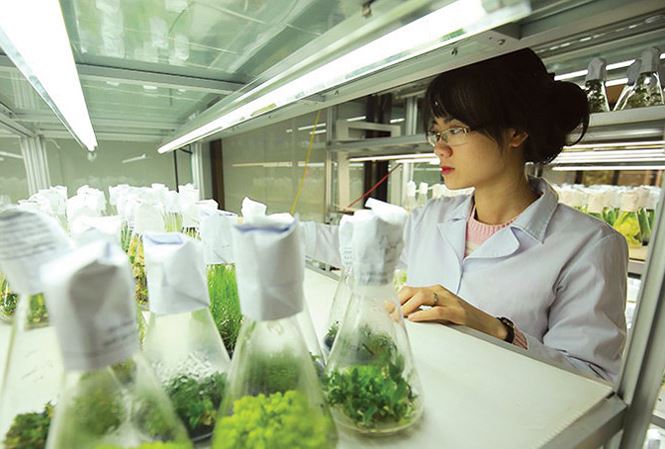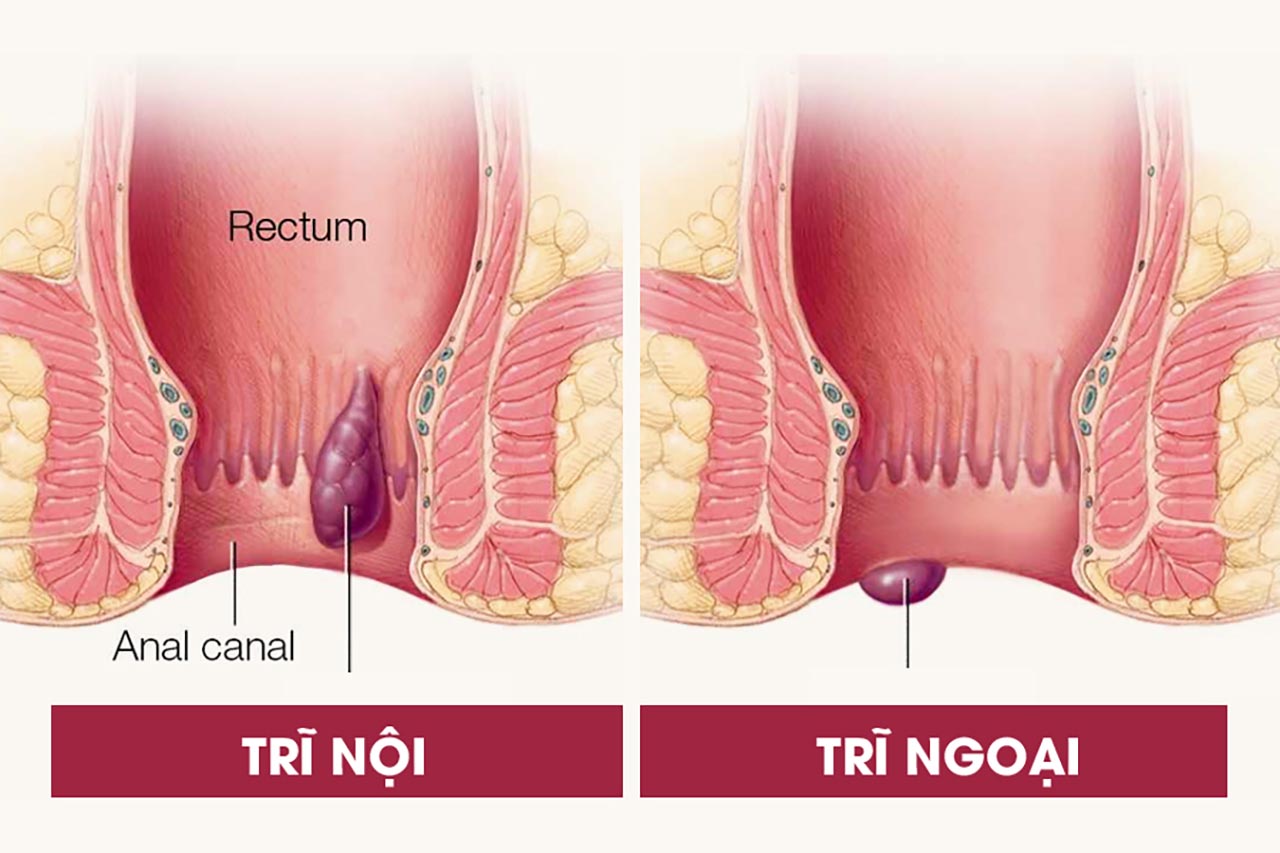Only in 2017, nearly a dozen researchers from the Institute of Biotechnology, the Vietnam Academy of Science and Technology left the institute to work abroad. This is just one of many examples of brain drain in academic institutions over the years. Meanwhile, the preferential policy issued for 4 years, no scientists have benefited.

Researcher at Key Laboratory of Gene Technology, Institute of Biotechnology, Vietnam Academy of Science and Technology. Photo: Loan Le.
A whole lab left the institute.
According to Assoc. Prof. Dr. Chu Hoang Ha, Director of the Institute of Biotechnology, Vietnam Academy of Science and Technology, about 15 years ago, the Institute of Biotechnology sent more than 200 staff abroad. training, but only about 20-30% go to Vietnam to work. Half of that 20-30% returned to the Institute of Biotechnology, which sent staff for training. However, after returning to the hospital, many staff went out to work.
According to Assoc. Prof. Dr. Chu Hoang Ha, the situation of brain drain was strong, in 2017 alone, there were nearly a dozen staff of the Institute of Biotechnology to work outside, even a job transfer room. . Assoc. Prof Ha shared, the average income of young staff at the Institute is about 4-5 million VND, when the PhD abroad returns, the salary, and the implementation of the new project are about 10 million VND. Most of the staff moved out to work for enterprises or taught at private universities. There are cadres at the Institute who go out to work and earn up to 120 million VND/month, equal to the annual income while at the Institute. When teaching and researching at private universities, the income is also about 20-30 million VND, so the Institute has no way to retain good people, leading staff in research.
Professor Ha shared difficulties in recruiting young cadres. Currently, the policy does not allow the institute to recruit secretaries for professional contracts. While the nature of a research unit does not mean that every university graduate is recruited into the payroll. A fresh graduate must be trained, challenged to get used to research and then sent abroad, usually 5-7 years. “In order to keep them for 5-7 years, but I don’t have a contract so they can work with peace of mind, the young cadres themselves feel that they are not appreciated and have no strings attached, so many cadres leave the country. Outside is to stay, “assoc. Not to mention, many people when returning home fall into shock situations, low wages, poor working conditions compared to foreign countries, unfamiliar working relationships, so it is easy to work outside.
According to Assoc. Ha, the biggest risk of brain drain is that research institutes and scientific branches will not have many excellent and leading staff. Meanwhile, only excellent people make a difference, and a high percentage of excellent scientists can create mutations. Mr. Ha compared, in the 70s and 80s, only the best, the best students with red degrees from Eastern European countries could come to the Academy to work, while now it is extremely difficult to attract young cadres. towel.
In a recent meeting with National Assembly Chairwoman Nguyen Thi Kim Ngan, Prof. Dr. Phung Ho Hai, Director of the Institute of Mathematics, Vietnam Academy of Science and Technology also shared, the recruitment of staff. It is extremely difficult because the Institute has very high professional requirements but is not able to meet attractive salaries for excellent people. Many excellent young cadres of the Institute have a total income of less than 10 million/month.
According to the Vietnam Academy of Science and Technology, recruiting new PhD students for science and technology fields is very difficult due to inadequacies in salary policy and payment mechanism. Meanwhile, to form a strong research group on an in-depth research direction needs a continuous time of 10-15 years. With the current funding and topic review, it is very difficult to form a strong enough research group to thoroughly solve the problem.
Policy issued for 4 years, no scientists have benefited yet.
In order to create favorable conditions and attract scientists to work, on May 12, 2014, the Government issued Decree 40 on the use and personal use of scientific and technological activities. The Decree stipulates the treatment policy for 3 groups of scientists, including leading scientists, scientists assigned to preside over important national science and technology tasks, and talented young scientists.
According to regulations, the leading scientist is granted an annual budget to carry out the activities of the excellent research group in the field of expertise. Financial support for the use of national key laboratories and other key laboratories, financial support for publication of research results, attendance at specialized scientific conferences, financial support for organization International specialized scientific conference in Vietnam. In addition, enjoy monthly incentives equal to 100% of current salary.
Scientists assigned to preside over particularly important national-level science and technology tasks will be able to actively use the allocated funds according to the method of contract spending, arrange and use human resources to carry out the work. assigned tasks, enjoy a salary equivalent to a level 3 senior expert and a monthly incentive equal to 100% of the salary before the time of assignment. In addition, transport facilities, official residences, and free use of national key laboratories and other laboratories to perform tasks are provided.
For talented young scientists, they will be considered for special recruitment without passing the exam to work in a public science and technology organization and enjoy a salary coefficient of 5.08. To be given priority to be sent to participate in specialized post-doctoral research programs, to be given priority to be sent to practice and work for a limited time at overseas science and technology organizations, to be given priority to directly assume the lead role. potential scientific and technological tasks. To be considered for financial support for the use of national key laboratories and other laboratories, financial support for the publication of scientific and technological results, and registration for protection of intellectual property rights for inventions. processing and plant varieties.
Despite such incentives, according to the research of Tien Phong, no scientist has yet been entitled to the remuneration policy of Decree 40, although the circular instructs It is quite detailed and clear. According to the Academy, the documents on the employment and treatment of scientists are not realistic and difficult to implement.
About 15 years ago, the Institute of Biotechnology sent more than 200 officials abroad for training, but only about 20-30% returned to Vietnam to work. Half of that 20-30% returned to the Institute of Biotechnology, which sent staff for training. However, after returning to the hospital, many staff went out to work.
















